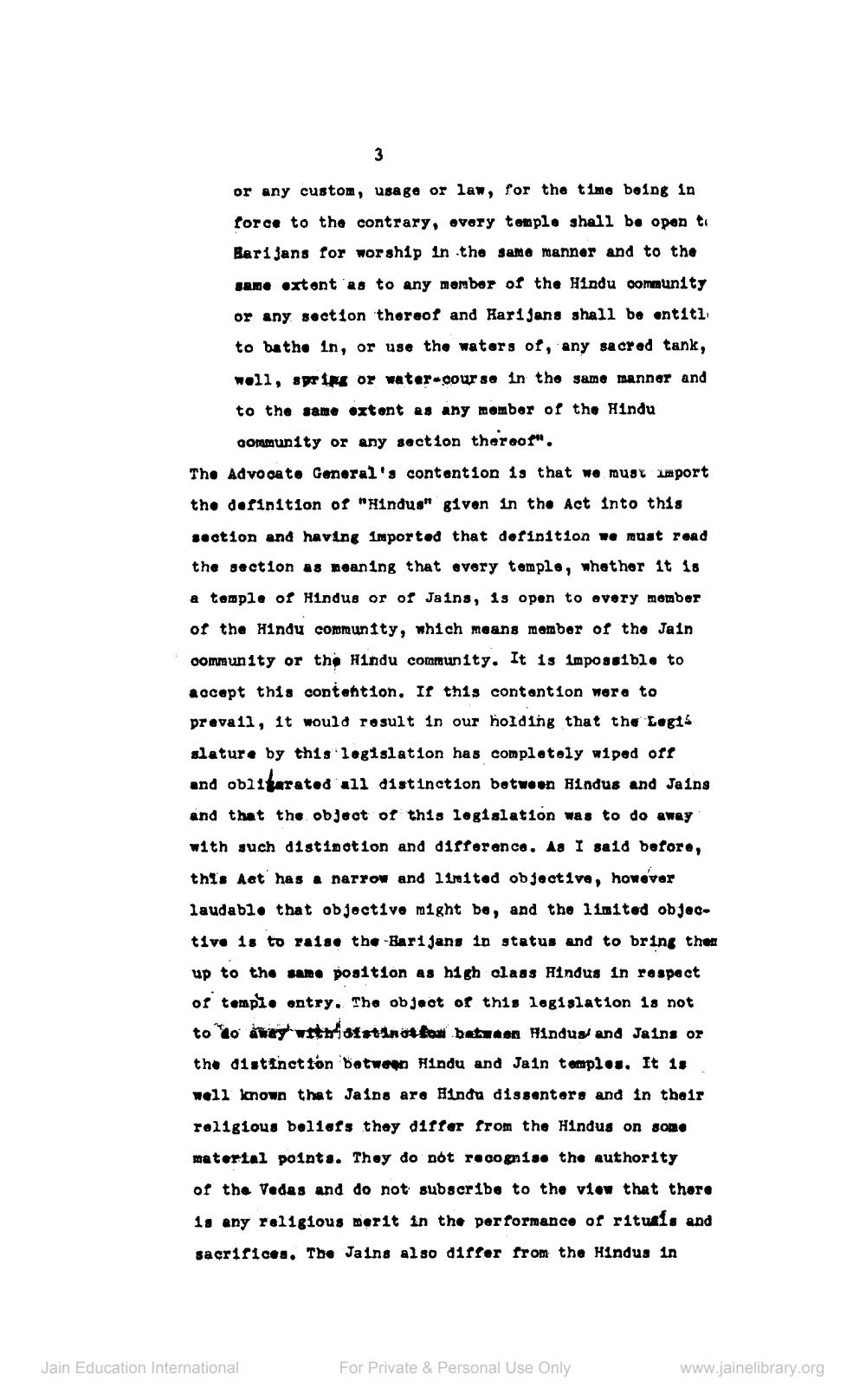________________
3
or any custom, usage or law, for the time being in force to the contrary, every temple shall be open t Barijans for worship in the same manner and to the same extent as to any member of the Hindu community or any section thereof and Harijans shall be entitl to bathe in, or use the waters of, any sacred tank, well, spring or water-course in the same manner and to the same extent as any member of the Hindu
community or any section thereof".
The Advocate General's contention is that we must import the definition of "Hindus" given in the Act into this section and having imported that definition we must read the section as meaning that every temple, whether it is a temple of Hindus or of Jains, is open to every member of the Hindu community, which means member of the Jain community or the Hindu community. It is impossible to accept this contention. If this contention were to prevail, it would result in our holding that the Legis slature by this legislation has completely wiped off and obliterated all distinction between Hindus and Jains and that the object of this legislation was to do away with such distinction and difference. As I said before, this Aet has a narrow and limited objective, however laudable that objective might be, and the limited objective is to raise the -Barijans in status and to bring them up to the same position as high class Hindus in respect of temple entry. The object of this legislation is not to do away with distinctfon between Hindus and Jains or the distinction between Hindu and Jain temples. It is well known that Jains are Hindu dissenters and in their religious beliefs they differ from the Hindus on some material points. They do not recognise the authority of the Vedas and do not subscribe to the view that there is any religious merit in the performance of rituais and sacrifices. The Jains also differ from the Hindus in
Jain Education International
For Private & Personal Use Only
www.jainelibrary.org




